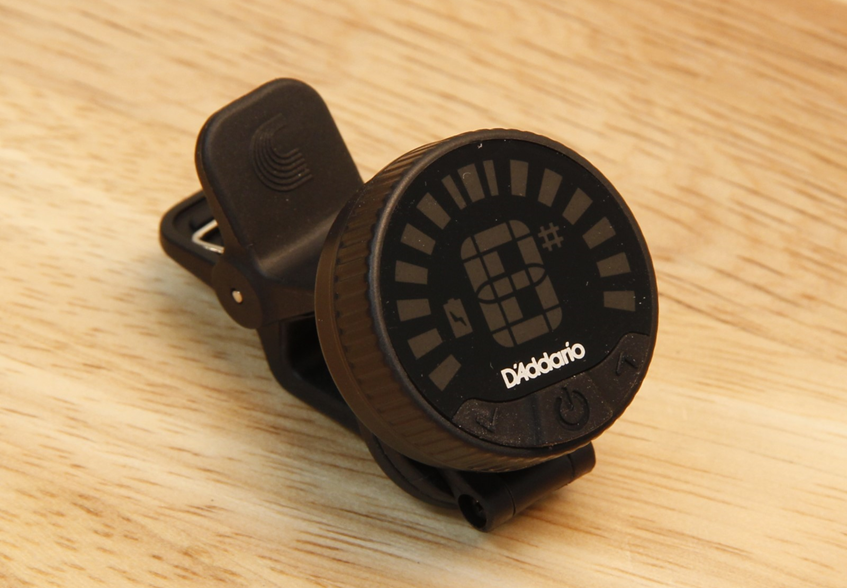
The Essential Guide to Guitar Tuners: Finding the Perfect Pitch
Guitar tuners are essential tools for musicians of all levels. They ensure that your instrument produces the perfect pitch, whether you’re a beginner or a seasoned professional. Having a reliable tuner is crucial for maintaining the correct sound and enhancing your playing experience.
With various types of guitar tuners available, it’s important to choose one that suits your specific needs and preferences. Here’s what you need to know.
Contents
Why You Should Buy a Tuner for Guitars

A common question among musicians is, “Do I really need a guitar tuner?” The answer is a resounding yes. One of the main reasons to use a tuner is to achieve precise and consistent tuning. Even if you have a good ear for music, a quality tuner for guitars ensures that each string is perfectly in tune, which is essential for producing harmonious and accurate sounds.
It’s also important to note that there are different types of tuners, each offering unique benefits and characteristics. Some are more suitable for electric guitars, while others are better for acoustic guitars.
Types of Guitar Tuners
Clip-On
Clip-on tuners are compact devices that attach to the headstock of your guitar. They use a built-in sensor to detect the vibrations of the instrument, providing accurate tuning even in noisy environments.
This type of tuner is popular among musicians for its ease of use and portability. The clip-on design ensures the tuner remains securely in place during tuning, and the vibration detection allows it to work independently of ambient noise. Many clip-on tuners also feature a bright LCD screen that clearly displays tuning information, making them a convenient choice for both practice and performance settings.
Pedal
Pedal tuners are designed for electric guitars and are integrated into a pedalboard setup. These tuners are activated by stepping on the pedal and offer a highly visible LED display that shows the tuning status. Built to withstand the rigours of live performances, pedal tuners are usually placed on the floor, making them easily accessible during a gig.
Pedal tuners often include features such as true bypass, which ensures they do not affect your guitar’s signal when not in use. They are ideal for musicians who need precise tuning while playing and prefer a hands-free approach.
Handheld
Handheld tuners are portable devices that can be used with any type of guitar. They typically feature a built-in microphone to detect the sound of the instrument or can connect via cable for electric guitars. These tuners offer accuracy and versatility, with some models providing advanced features like different tuning modes and calibration options.
Handheld tuners often come with clear LCD screens or LED indicators, making them easy to read in various lighting conditions. They are a good choice for musicians who need a reliable and versatile tuning solution for practice, recording, or live performance.
Soundhole
Soundhole tuners are specifically designed for acoustic guitars and are installed directly into the soundhole. They are often equipped with a clip or bracket to hold them securely in place. These tuners use vibration sensors to detect the sound of the guitar, eliminating the need for external microphones.
Soundhole tuners are ideal for acoustic players who prefer a discreet and integrated solution. They typically feature easy-to-read displays and can be removed when not in use. Their design minimises interference and allows for precise tuning, making them a practical choice for acoustic guitarists.
App-Based Tuners
App-based tuners utilise your smartphone or tablet’s microphone to detect and analyse the pitch of your guitar strings. Available as free or paid apps, they offer a range of features, including different tuning modes and visual displays.
These tuners are highly portable and convenient, as they are always accessible on your mobile device. However, their accuracy can be influenced by background noise, and they may not be as reliable in loud environments compared to dedicated tuners.
What to Consider When Selecting a Tuner

Instrument Type and Compatability
When selecting a tuner, it’s important to ensure that it is compatible with your instrument. Different tuners are designed for specific types of guitars and other stringed instruments. For example, clip-on tuners are versatile and work well with both acoustic and electric guitars, while soundhole tuners are specifically designed for acoustic guitars. Pedal tuners, on the other hand, are tailored for electric guitars and often integrate with pedalboards. There are also tuners that are compatible with various types of stringed instruments.
Portability
Portability is important, especially if you need to tune your instrument on the go. Clip-on and handheld tuners are highly portable, making them easy to carry in a gig bag or pocket. Pedal tuners, while excellent for stage use, are less portable due to their size.
Soundhole tuners are designed to stay on the instrument, while app-based tuners provide the highest portability since they are always accessible on your smartphone or tablet.
Accuracy
A precise tuning is essential for optimal sound quality. Clip-on handheld devices typically offer high accuracy. Pedal devices remain a preferred option by professional musicians for live performances due to their accuracy. Soundhole devices, on the other hand, provide accurate readings, but may vary slightly depending on the model.
When it comes to App-based tuners, while they can be accurate, they still might be influenced by background noise and the quality of your device’s microphone.


No Comments